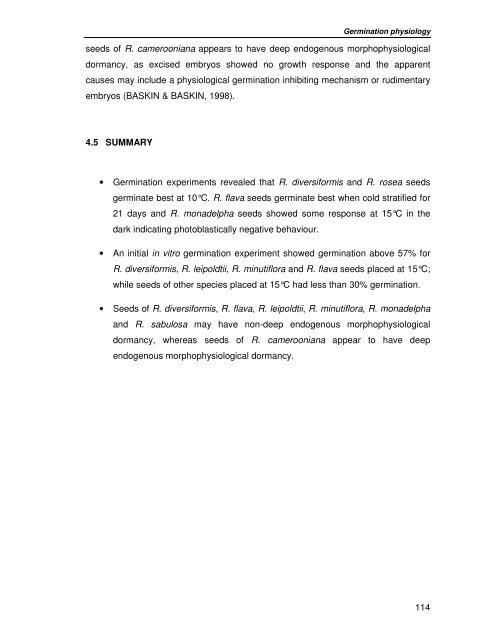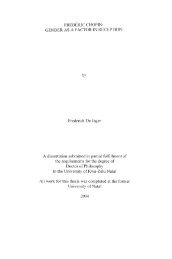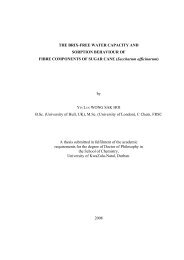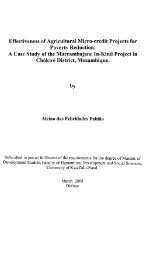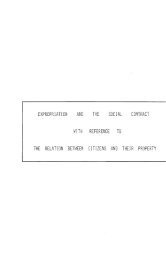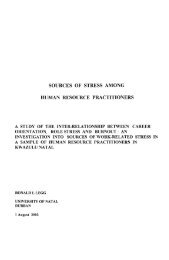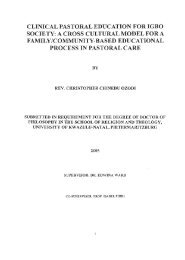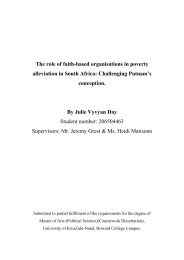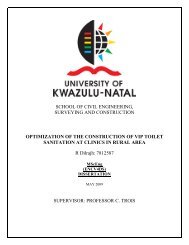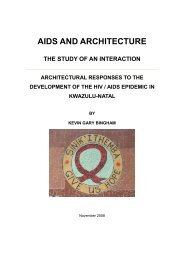View/Open - ResearchSpace - University of KwaZulu-Natal
View/Open - ResearchSpace - University of KwaZulu-Natal
View/Open - ResearchSpace - University of KwaZulu-Natal
You also want an ePaper? Increase the reach of your titles
YUMPU automatically turns print PDFs into web optimized ePapers that Google loves.
Germination physiology<br />
seeds <strong>of</strong> R. camerooniana appears to have deep endogenous morphophysiological<br />
dormancy, as excised embryos showed no growth response and the apparent<br />
causes may include a physiological germination inhibiting mechanism or rudimentary<br />
embryos (BASKIN & BASKIN, 1998).<br />
4.5 SUMMARY<br />
• Germination experiments revealed that R. diversiformis and R. rosea seeds<br />
germinate best at 10°C. R. flava seeds germinate best when cold stratified for<br />
21 days and R. monadelpha seeds showed some response at 15°C in the<br />
dark indicating photoblastically negative behaviour.<br />
• An initial in vitro germination experiment showed germination above 57% for<br />
R. diversiformis, R. leipoldtii, R. minutiflora and R. flava seeds placed at 15°C;<br />
while seeds <strong>of</strong> other species placed at 15°C had less than 30% germination.<br />
• Seeds <strong>of</strong> R. diversiformis, R. flava, R. leipoldtii, R. minutiflora, R. monadelpha<br />
and R. sabulosa may have non-deep endogenous morphophysiological<br />
dormancy, whereas seeds <strong>of</strong> R. camerooniana appear to have deep<br />
endogenous morphophysiological dormancy.<br />
114


